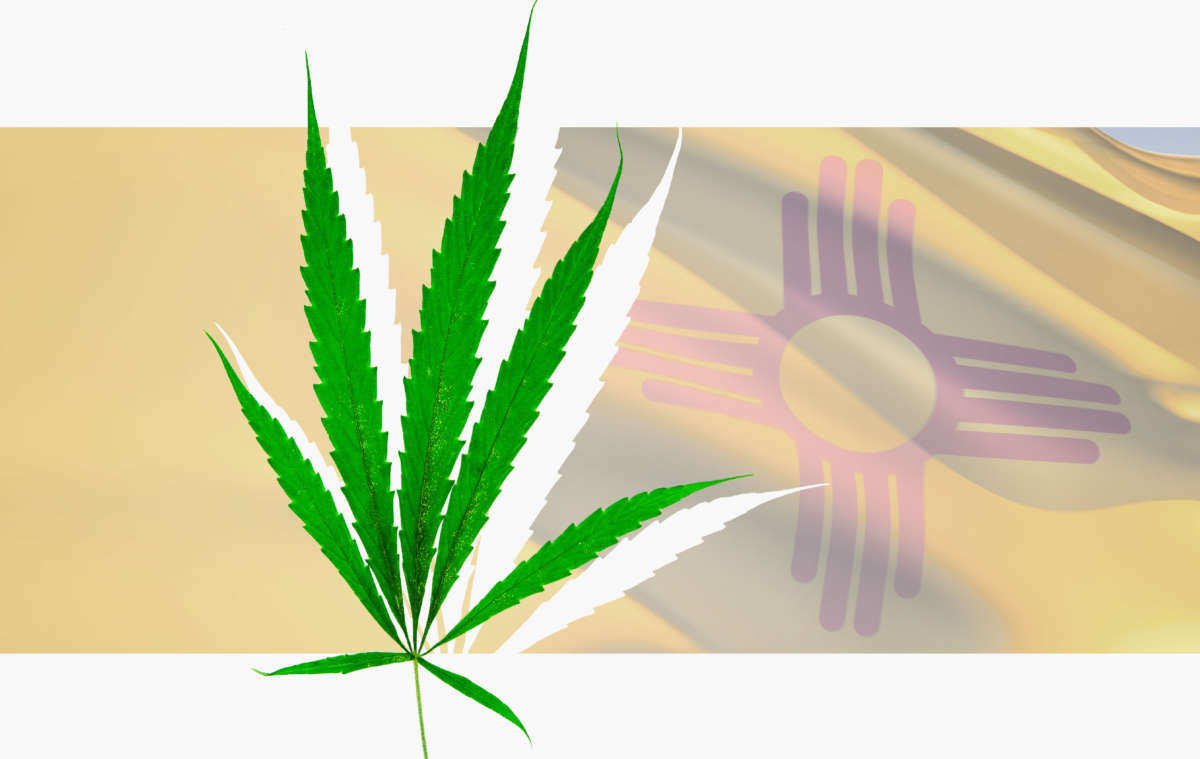Legislators in New Mexico passed a bill this week legalizing recreational marijuana use and expunging the criminal records of people who have possessed the drug for personal recreational purposes. The law now heads to Gov. Michelle Lujan Grisham (D-New Mexico), who has promised to sign the bill into law.
With Grisham’s signature, New Mexico will become the 16th state to legalize recreational marijuana. The state follows New York, which also passed the legalization of recreational marijuana into law this week. New Mexico’s Senate voted mostly on party lines to pass House Bill 2 legalizing marijuana on Wednesday night.
“This is a significant victory for New Mexico,” said Grisham in a statement. “Those who have been harmed by this country’s failed war on drugs, disproportionately communities of color, will benefit from our state’s smart, fair and equitable new approach to past low-level convictions.”
Advocates cheer the legalization as a crucial step toward racial justice in drug criminalization. Black and Latino people are far more likely to be arrested for marijuana possession than white people in places where the drug is still illegal. A New York Times report found in 2018 that, in Manhattan, Black people were arrested at 15 times the rate of white people for marijuana charges.
Overall, in New York, Black people were 2.6 times more likely to be arrested for marijuana than white people; and in New Mexico, Black people were four times more likely than white people to get arrested for marijuana, according to the American Civil Liberties Union (ACLU). On average, across the U.S., Black people are more likely to get arrested at 3.6 times the rate that white people are for marijuana.
The racial disparities are so stark that legalization advocates like the ACLU have called laws outlawing cannabis “the new Jim Crow.” They argue that marijuana laws aren’t necessarily about public health concerns, but are intended to give law enforcement and the criminal legal system control over Black peoples’ lives.
Under the new law, New Mexicans over the age of 21 will be able to have up to two ounces of marijuana, and up to six marijuana plants for individuals and up to 12 for a household. New York’s law is a bit more lenient, allowing up to three ounces of cannabis for recreational use and will also eventually allow individuals to own six marijuana plants.
As Democrats have taken control of Congress and the White House, some party members have renewed efforts to legalize marijuana nationwide. In February, Senate Majority Leader Chuck Schumer (D-New York) and Senators Cory Booker (D-New Jersey) Ron Wyden (D-Oregon) pledged to introduce legislation sometime this year and recently reemphasized that pledge as the news of the states legalizing the drug broke.
“The War on Drugs has been a war on people — particularly people of color,” the senators said in a statement. “Ending the federal marijuana prohibition is necessary to right the wrongs of this failed war and end decades of harm inflicted on communities of color across the country.”
The senators are still working on the legislation, but Rep. Earl Blumenauer (D-Oregon), founder of the Congressional Cannabis Caucus, is hopeful that it could be passed this year.
“The table is set for full legalization,” Blumenauer said in a statement. “We have a strong base of support in the House and in the Senate we no longer have the Mitch McConnell roadblock. It’s not a forgone conclusion, but it’s the strongest position we’ve ever been in.” Though the legislation could potentially pass the House, it would face difficulty clearing the filibuster hurdle in the Senate.
The public agrees that the time is now: Support for marijuana legalization is higher than ever, found a recent Gallup poll. The official Democratic platform for this year called for legalizing the drug and expunging criminal records for those who have been charged with cannabis-related convictions in the past. President Joe Biden has also signaled his support for decriminalization but has faced criticism for dismissing staffers who had used the drug in the past.
The Congressional Progressive Caucus also pledged to fight for marijuana legalization in their agenda for 2021, called the “People’s Agenda.” Cannabis legalization is part of progressives’ larger goals to dismantle white supremacy and overhaul the racist criminal legal system.
Activists argue that lawmakers should go even further. The criminalization of any drugs, they say, has only made entrenched problems like addiction, unsafe drug use and racism in the court system even worse. Data have shown that drug criminalization does not reduce its use, and advocates say that we should instead focus on fighting stigma against drug users.
Join us in defending the truth before it’s too late
The future of independent journalism is uncertain, and the consequences of losing it are too grave to ignore. To ensure Truthout remains safe, strong, and free, we need to raise $43,000 in the next 6 days. Every dollar raised goes directly toward the costs of producing news you can trust.
Please give what you can — because by supporting us with a tax-deductible donation, you’re not just preserving a source of news, you’re helping to safeguard what’s left of our democracy.
